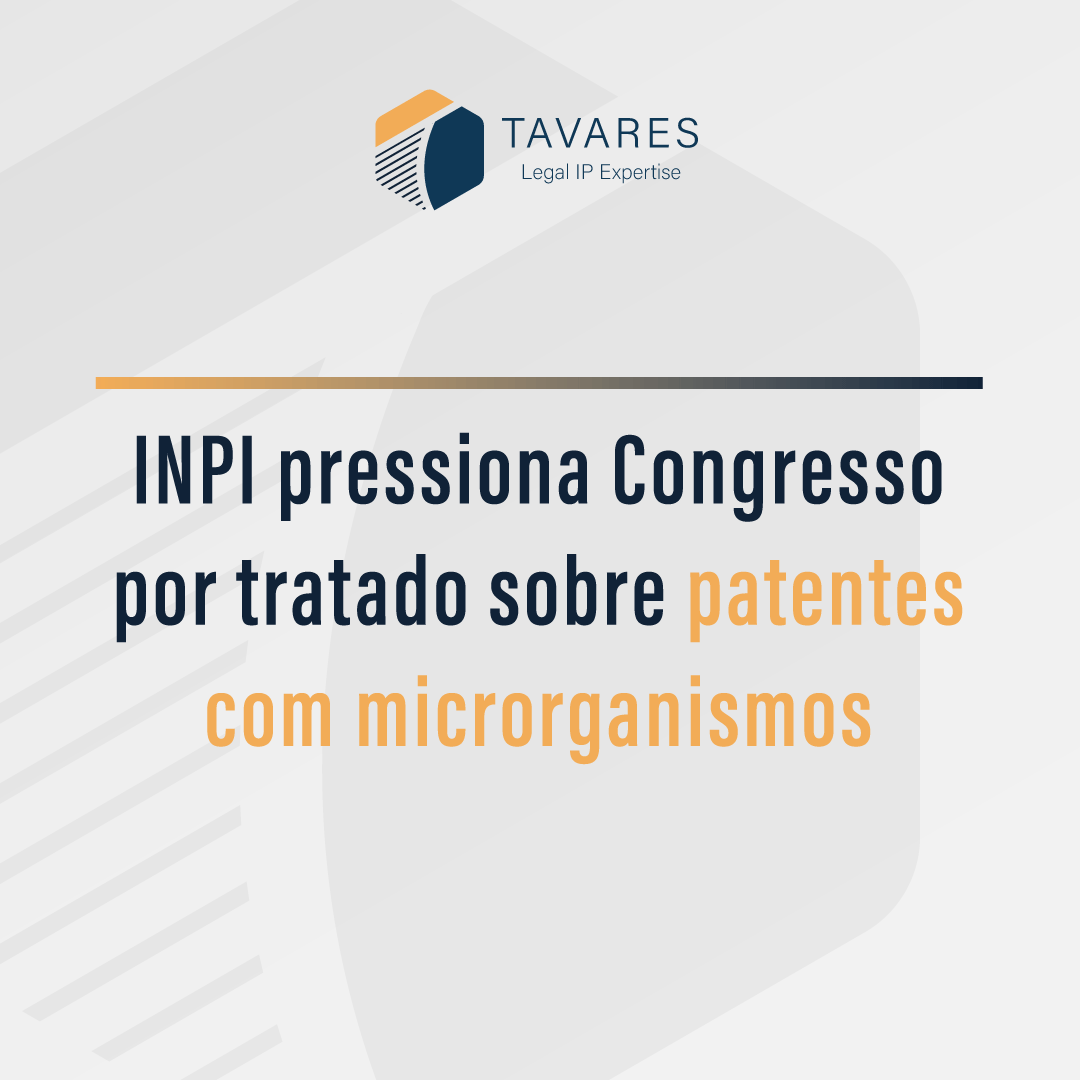The Brazilian Patent and Trademark Office (BPTO) pressured parliamentarians to approve a draft legislative decree (PDL) related to the Budapest Treaty. The proposal introduces this pact into the Brazilian legal framework, which provides rules for depositing microorganisms for patent applications.
The text has already passed through several committees of the Chamber of Deputies. However, the rapporteur’s opinion in the House’s Constitution, Justice, and Citizenship Committee (CCJC) is still awaiting approval.
The BPTO, represented by its president, Júlio César Moreira, has been talking to federal deputies and senators to demand progress in the process, as it understands that Brazil’s adherence to the treaty is beneficial for research and development of biotechnology.
The main advantage of including the Budapest Treaty in Brazilian legislation is the reduced costs and time for sending and filling microorganisms for patents.
These microscopic beings are currently widely used in agricultural production but can also be used by the pharmaceutical industry.
Detailed Description
A complete description of the invention sought to be protected in a patent application is necessary. The guidelines must be clear enough so that a technician in the area can reproduce the product without unnecessary or exaggerated efforts.
When a patent is granted to an inventor, third parties cannot commercialize the product for 20 years. However, the system ensures that these third parties can appropriately know the invention, study it, and place something on the market after the exclusive protection period or even innovate immediately.
“Whoever appropriates that information can go to the laboratory, develop a new product based on that existing knowledge, edge, and file a new patent,” explains the president of BPTO. “That’s what the system exists for to encourage innovation and new products on the market.”
In cases where the invention involves biological material — microorganisms — the written description is insufficient to meet this objective. Therefore, besides the report, a strain of microorganisms used in the product must be deposited in a reference center.
These centers are called international depository authorities (IDAs). They are responsible for storing the microorganisms, conserving them, and making them available to the public upon request.
IDAs, for patent purposes, are regulated by the Budapest Treaty, signed in Hungary in 1977 and force since 1980. Currently, 89 countries are signatories to the pact.
Under the rules of the treaty, countries are required to recognize microorganisms deposited in IDAs as part of the patent-obtaining procedure. Thus, a deposit with one of these authorities is valid for all signatories.
Brazil
Although Brazil is not yet part of the Budapest Treaty, the BPTO accepts the file of biological material in ID; that is, it recognizes the capacity of these authorities to receive the microorganisms used in inventions.
But, without adhesion to the pact, Brazil cannot have centers of this type in its territory. Therefore, Brazilian inventors (individuals, companies, es, or institutions send microorganisms to IDAs in other countries.
Today, 49 foreign IDAs are certified by the treaty. The best known are the American Type Culture Collection (ATCC), located in Manassas, in the United States, and the German Collection of Microorganisms and Cell Cultures (DSMZ, its acronym in German), from the Leibniz Institute, located in the German city of Brunswick.
In Latin America, there is only one IDA, the Chilean Collection of Microbial Genetic Resources (CChRGM), in Chillán. However, according to Júlio César Moreira, this center in Chile “is minimal” and “is not diverse” as Brazil needs.
As a member of the international pact, Brazil could have a depository center recognized worldwide to store biological material in general. Part of the collection would be focused on patents.
But this would not be automatic. The country would need to suggest institutions capable of receiving biological material so the treaty council could evaluate them.
Source: Conjur






